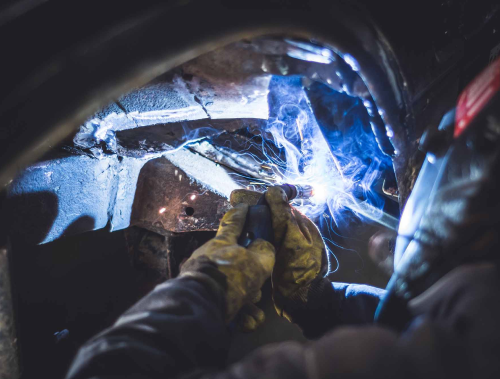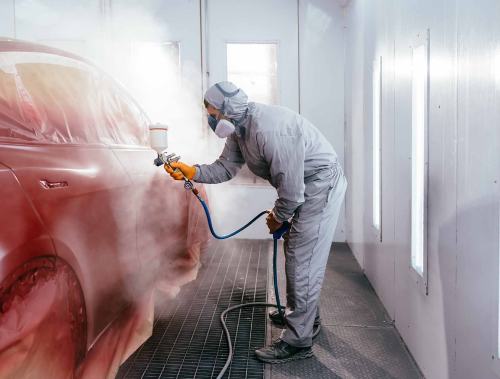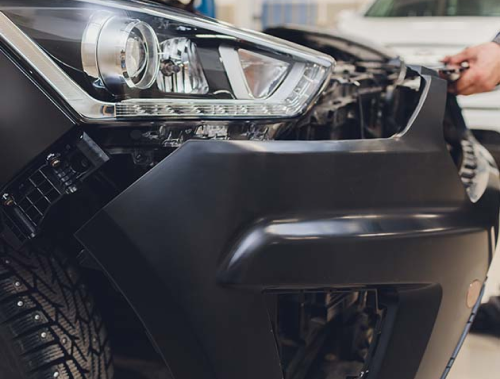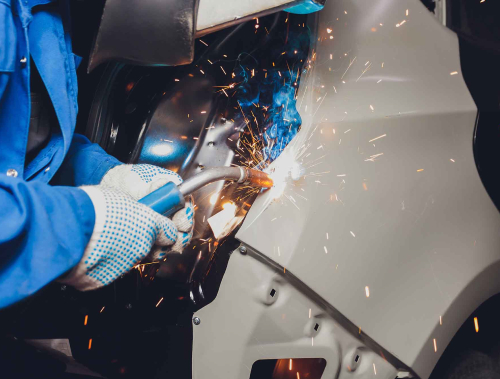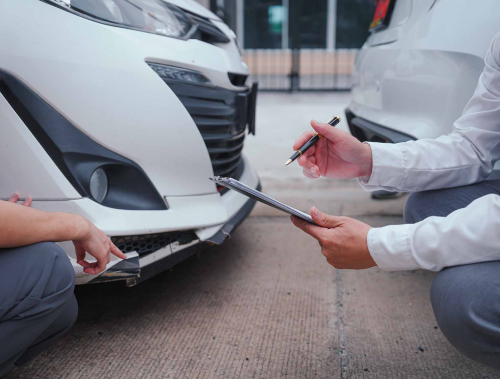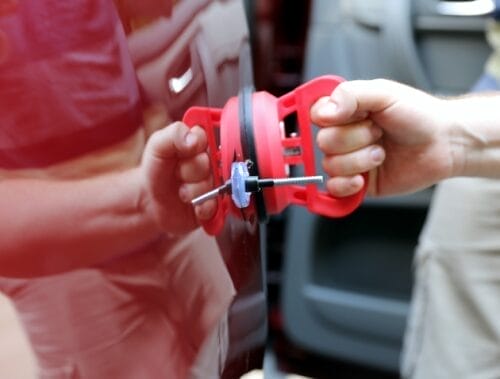When your car needs auto body repairs, finding the right shop can be a daunting task. Your vehicle is a significant investment, and ensuring it’s in capable hands is crucial. To make an informed decision, it’s essential to ask the right questions. This guide provides a comprehensive list of questions that will help you evaluate potential auto body repair shops, ensuring that you choose a trustworthy and reliable service provider.
Shop Experience and Expertise
How Long Have You Been in Business?
A shop’s history often reflects its reliability and expertise. Asking how long a repair shop has been in business can give you valuable insights into their experience and track record. A shop with a long-standing presence in the community is likely to have built a reputation for quality work and customer satisfaction. Longevity in the industry often indicates that the shop has successfully navigated various challenges and maintained a loyal customer base.
Are Your Technicians Certified?
The skills and qualifications of the technicians working on your vehicle are paramount. Inquiring about certifications such as ASE (Automotive Service Excellence) or I-CAR (Inter-Industry Conference on Collision Repair) ensures that the professionals handling your repairs are properly trained and knowledgeable. Certified technicians are likely to stay updated on the latest repair techniques and industry standards, which can significantly impact the quality of the repair work.
Do You Have Experience with My Vehicle Make and Model?
Not all vehicles are created equal, and neither are the repair techniques required for different makes and models. It’s important to confirm that the shop has specific experience with your type of vehicle. Some cars, especially luxury or foreign models, may require specialized tools or knowledge. By asking this question, you can ensure that the shop is equipped to handle the unique needs of your vehicle, potentially preventing future issues that could arise from improper repairs.
Shop Certifications and Licenses
Are You Licensed and Insured?
Ensuring that a repair shop is properly licensed and insured is a critical step in your evaluation process. A licensed shop has met the state’s requirements to operate legally, while insurance protects both you and the shop in case of accidents or damages during the repair process. This question helps you verify that the shop is operating within legal standards and that your vehicle is protected while it’s in their care.
Do You Have OEM Certifications?
Original Equipment Manufacturer (OEM) certifications are a strong indicator that a shop adheres to manufacturer-approved repair methods and uses high-quality parts. If a shop is OEM certified, it means they have received training from the vehicle’s manufacturer and have met specific standards for repairs. This can provide peace of mind, knowing that your vehicle will be repaired with parts and techniques that maintain its original condition and safety standards.
Repair Process and Timelines
What Is the Estimated Timeline for Repairs?
Understanding the timeline for your vehicle’s repairs is crucial, especially if you rely on your car for daily transportation. By asking about the estimated repair time, you can plan accordingly and set realistic expectations. It’s also important to ask about factors that could potentially delay the process, such as parts availability or additional damage found during repairs. This transparency helps you avoid surprises and ensures that you’re kept informed throughout the repair process.
What Is Your Repair Process?
Every shop has its own approach to vehicle repairs. Asking about their process gives you a clearer picture of what to expect. A detailed explanation of the repair process, from initial assessment to the final inspection, can help you understand the thoroughness and quality of the work being done. This question also provides an opportunity to ask about any specific steps they take to ensure the repairs meet safety and quality standards.
How Will You Keep Me Updated on the Progress?
Communication is key when your vehicle is in the shop. Inquiring about how the shop will keep you updated on the progress of your repairs is essential. Some shops may offer regular updates via phone calls, emails, or text messages, while others might only reach out if there’s a significant development. Understanding their communication process ensures that you’re always in the loop and can make informed decisions if any issues arise during the repair process.
Estimates and Costs
Can You Provide a Written Estimate?
A written estimate is crucial to avoid unexpected costs and misunderstandings. It should include a detailed breakdown of labor, parts, and any additional fees. By securing a written estimate, you can compare it with other shops and ensure there are no hidden charges. This documentation also serves as a reference in case any discrepancies arise during or after the repair.
How Do You Handle Unexpected Repairs or Additional Costs?
Repairs can sometimes uncover additional issues that need to be addressed. It’s important to know how the shop handles such situations. Will they notify you before proceeding with additional work? How will these extra costs be communicated and documented? Understanding this process ensures that you’re not caught off guard by unexpected expenses and that you remain in control of the repair decisions.
Do You Offer Any Payment Plans or Financing Options?
Auto body repairs can be expensive, and not everyone is prepared to pay the full amount upfront. Asking about payment plans or financing options can provide some financial flexibility. Whether they offer interest-free financing or payment plans, this information can help you manage the costs without compromising on the quality of the repairs.
Warranty and Guarantees
What Kind of Warranty Do You Offer on Repairs?
A warranty on repairs is a sign of a shop’s confidence in its work. Inquiring about the warranty coverage for both labor and parts is essential. Understand the duration of the warranty and any conditions that apply. A comprehensive warranty ensures that if any issues arise after the repair, you’re covered, giving you peace of mind.
How Do You Handle Warranty Claims?
Even with a warranty in place, it’s important to know the process for making a claim. Ask about how the shop handles warranty claims, including how quickly they respond to issues and what documentation is required. This will help you understand how the shop supports its customers after the repair is completed, ensuring that your vehicle remains in good condition long after you’ve left the shop.
Parts and Materials
Will You Use OEM or Aftermarket Parts?
One of the key considerations in auto body repairs is the type of parts the shop will use—Original Equipment Manufacturer (OEM) parts or aftermarket parts. OEM parts are made by the vehicle’s manufacturer, ensuring they match the original components in terms of quality and fit. They are generally recommended for maintaining the integrity of your vehicle, particularly if it’s still under warranty.
On the other hand, aftermarket parts are produced by third-party manufacturers and can vary in quality. While they are often less expensive, they may not always provide the same level of fit or performance as OEM parts. By asking the shop which type of parts they use, you can weigh the pros and cons and decide what’s best for your vehicle based on cost, quality, and your personal preference.
Can I Inspect the Parts That Will Be Used?
For those who are particular about the quality of parts used in their vehicle, it’s a good idea to ask if you can inspect the parts before they are installed. This request ensures transparency and gives you the chance to verify that the parts meet your expectations, whether they are OEM or aftermarket. Inspecting the parts also provides peace of mind that what’s being put into your vehicle is of the quality you’re paying for. This step is particularly important if you’ve opted for OEM parts, as it confirms that the shop is using the specified components.
Customer Satisfaction and Reviews
Can You Provide References or Customer Testimonials?
Before committing to a repair shop, it’s wise to ask for references or look for customer testimonials. Hearing from previous customers gives you an idea of the shop’s reputation and the quality of its services. Positive testimonials and references can reassure you that the shop consistently meets customer expectations, while a lack of feedback might be a red flag.
In addition to asking the shop directly, consider doing some independent research online. Check reviews on platforms like Google, Yelp, or the Better Business Bureau to get a broader sense of customer experiences. This research can reveal common themes, such as consistent satisfaction with repairs or recurring issues that might influence your decision.
How Do You Handle Customer Complaints or Issues?
Even the best shops might occasionally face customer complaints or issues. How a shop handles these situations is crucial in determining their commitment to customer satisfaction. By asking about their process for resolving complaints, you can gauge how seriously they take customer feedback and whether they are willing to go the extra mile to rectify any problems.
A good shop should have a clear, respectful process for addressing issues, whether it’s offering a re-do of the work, providing a refund, or finding another mutually agreeable solution. Understanding this process in advance gives you confidence that, should anything go wrong, the shop will be responsive and willing to make it right.
Finalizing the Decision
Why Should I Choose Your Shop Over Others?
This question is an excellent way to give the shop an opportunity to differentiate itself from competitors. Whether it’s their years of experience, exceptional customer service, specialized expertise, or commitment to quality, asking this question allows the shop to highlight what makes them unique. Their response can provide valuable insights into their values and priorities, helping you determine if they align with what you’re looking for in a repair shop.
What Are the Next Steps if I Decide to Proceed?
Once you’ve decided on a shop, understanding the next steps is crucial for a smooth process. Ask about how to schedule the repair, what documentation you’ll need to provide, and any other preliminary steps required. Knowing what to expect can help you prepare adequately and ensure there are no surprises along the way. This question also reinforces that you’re ready to move forward, allowing the shop to guide you through their process, from intake to the completion of your vehicle’s repairs.
Conclusion
Choosing the right auto body repair shop is a critical decision that can affect the safety, appearance, and value of your vehicle. By asking the right questions, you ensure that the shop you choose is trustworthy, reliable, and capable of delivering high-quality repairs. Take your time to thoroughly vet potential shops, compare their responses, and make an informed decision. Remember, your vehicle deserves the best care, and by doing your due diligence, you’ll increase the likelihood of a successful and stress-free repair experience.

